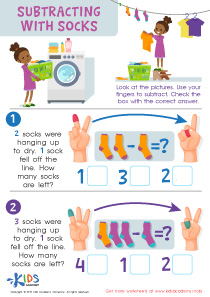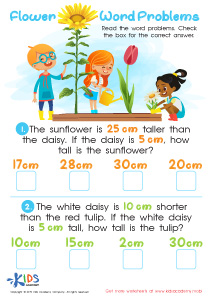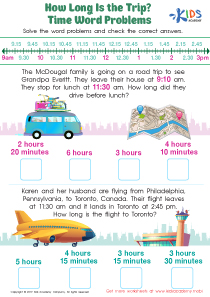Addition and Subtraction Word Problems Worksheets for Ages 6-9
90 filtered results
-
From - To
Boost your child’s mathematical skills with our "Addition and Subtraction Word Problems Worksheets for Ages 6-9". These engaging worksheets are designed to enhance problem-solving abilities and build a strong foundation in math for young learners. Featuring various scenarios relatable to their everyday lives, these worksheets help children grasp the concepts of addition and subtraction more effectively. Each worksheet fosters critical thinking by combining math practice with reading comprehension. Ideal for at-home practice or classroom use, our worksheets will make learning fun and interactive. Cultivate a love for math in your child with our expertly crafted resources.
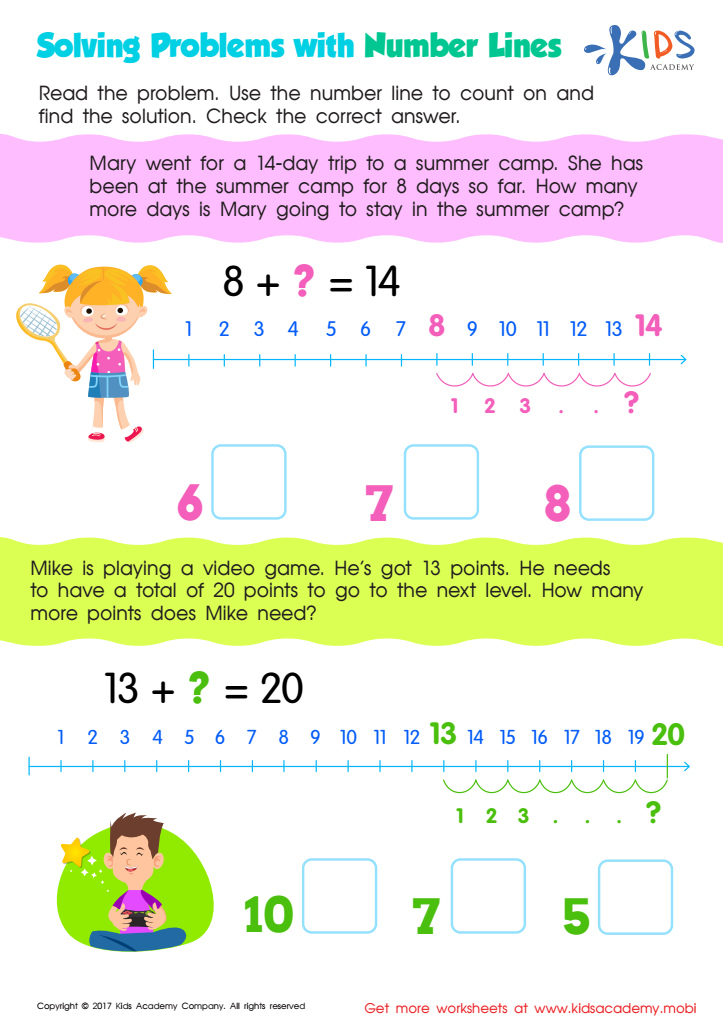

Solving Problems: Number Lines Worksheet
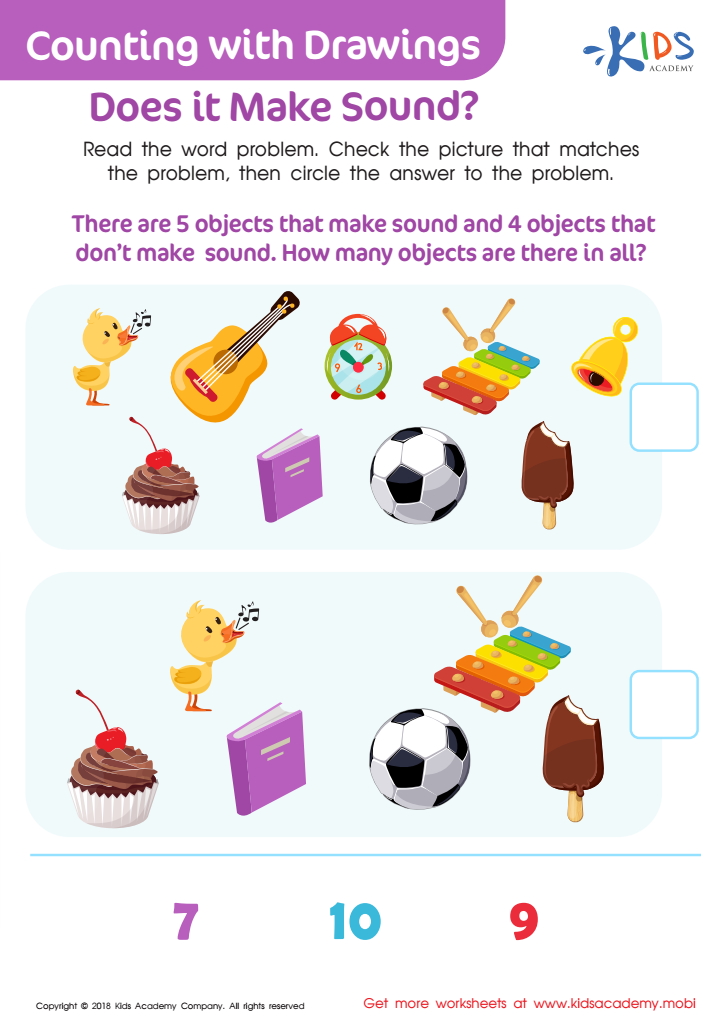

Counting With Drawings. Does It Make Sound? Worksheet
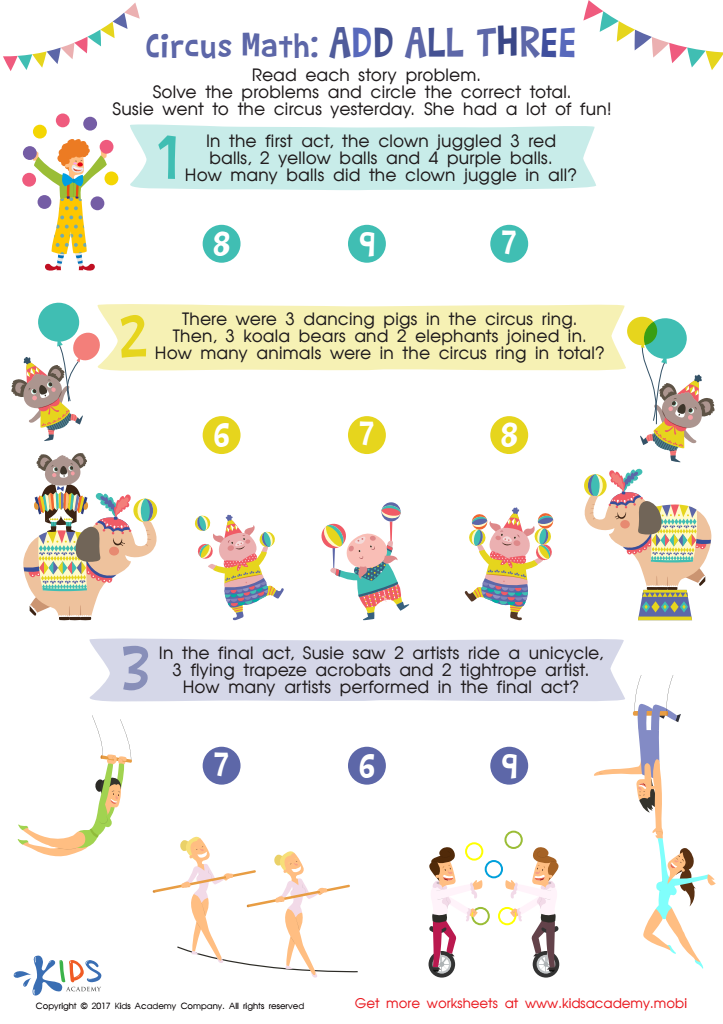

Circus Math Printable
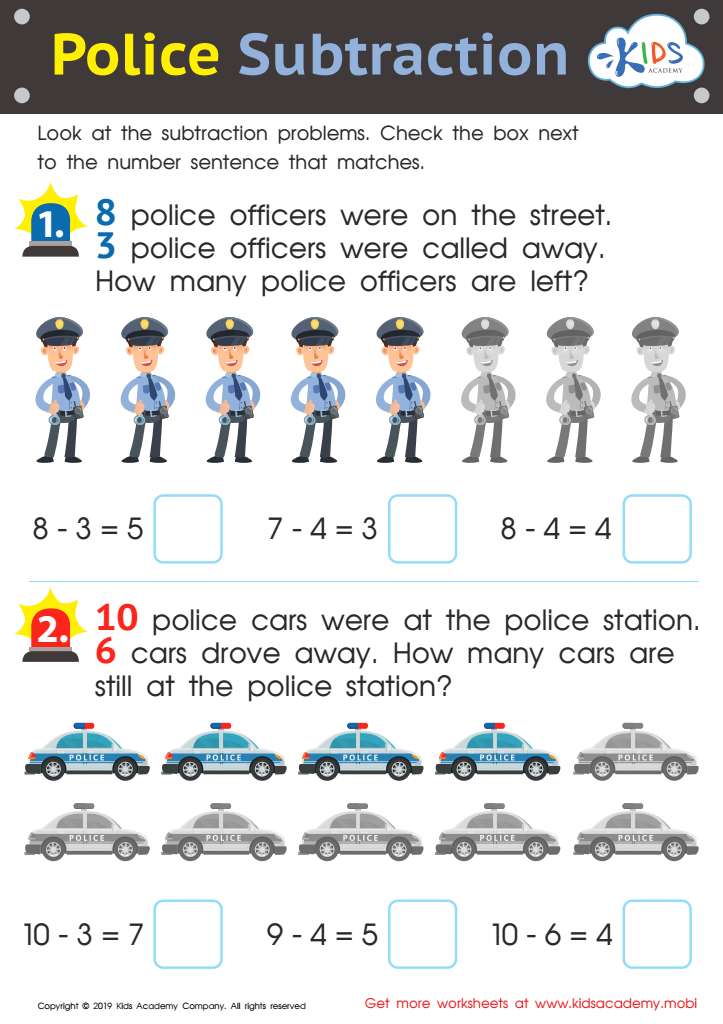

Police Subtraction Worksheet
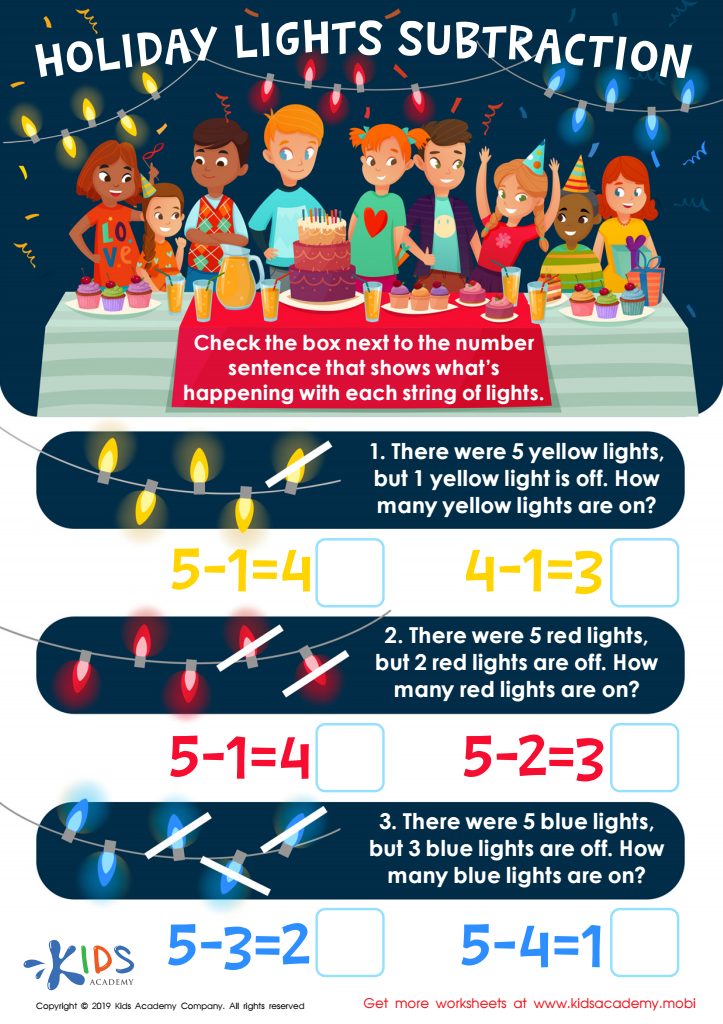

Holiday Lights Subtraction Worksheet
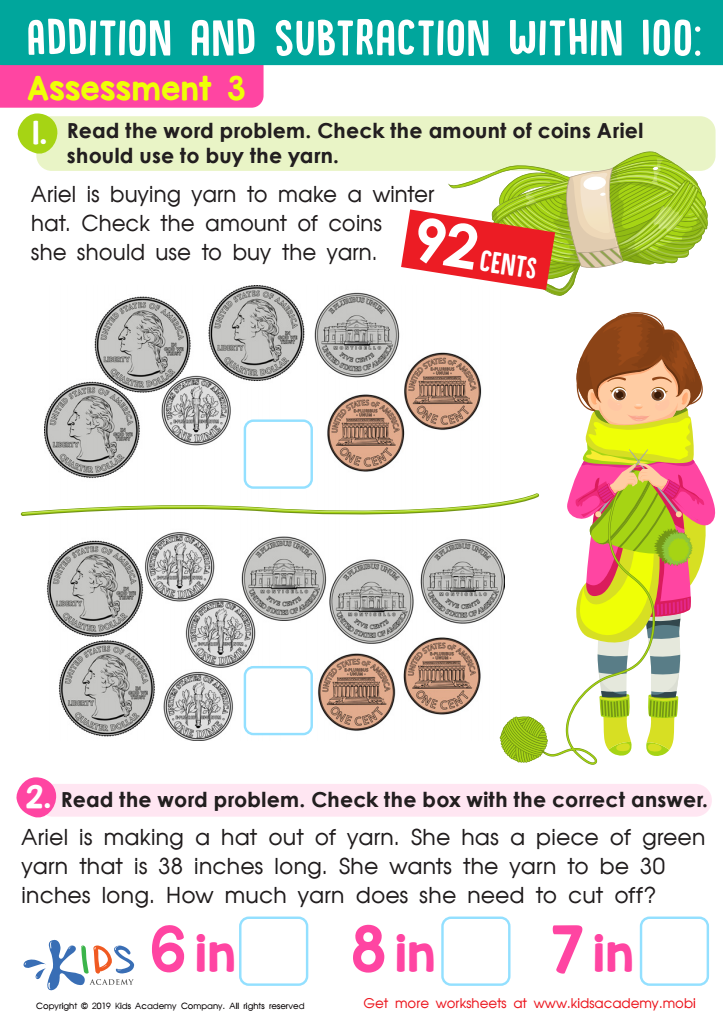

Assessment 3 Math Worksheet


Tricky Problems Worksheet: Part 1
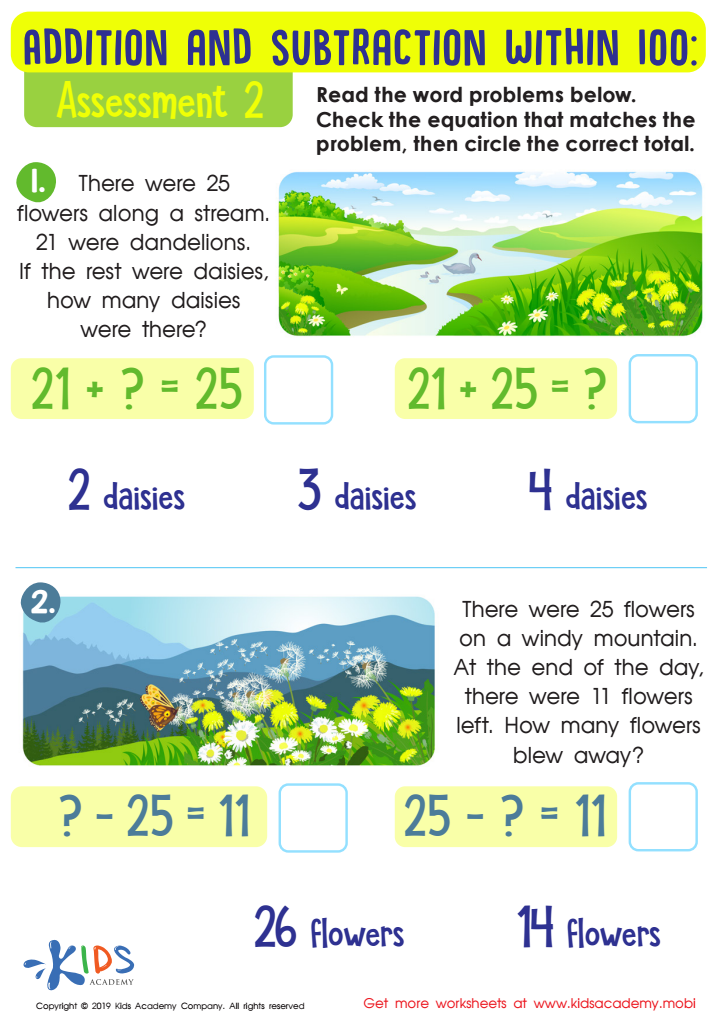

Assessment 2 Math Worksheet
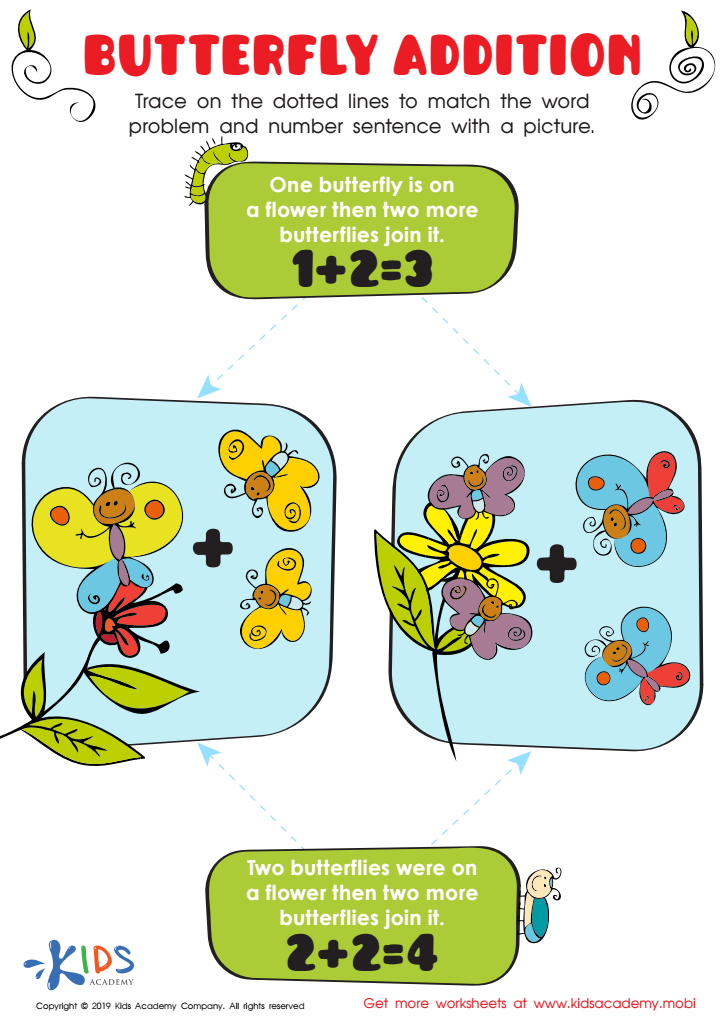

Butterfly Addition Worksheet
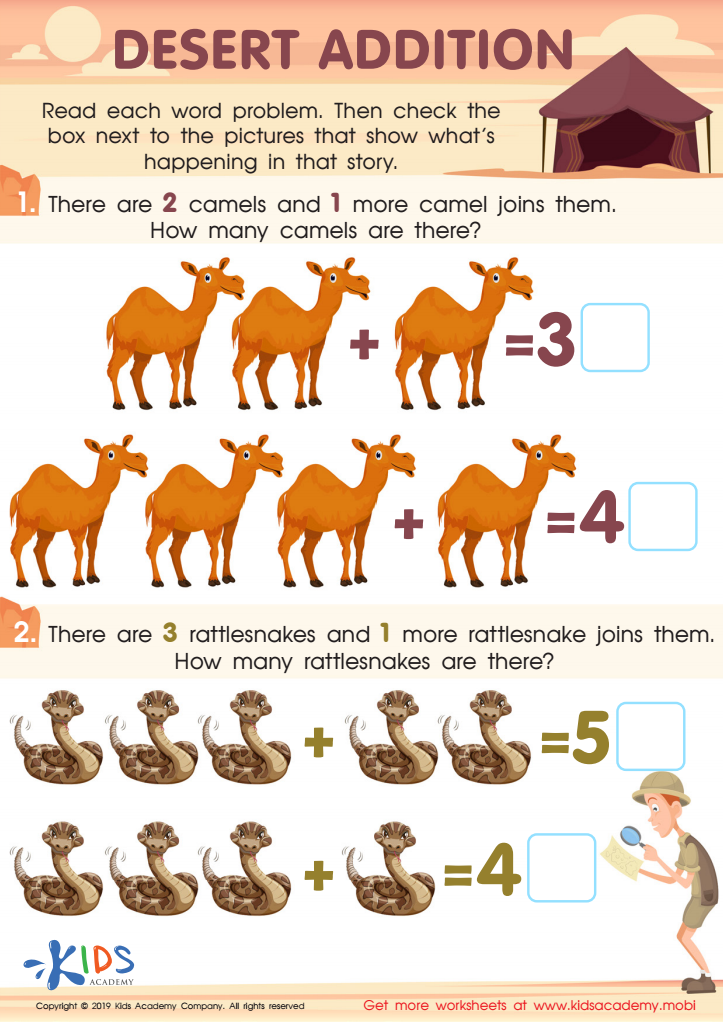

Desert Addition Worksheet
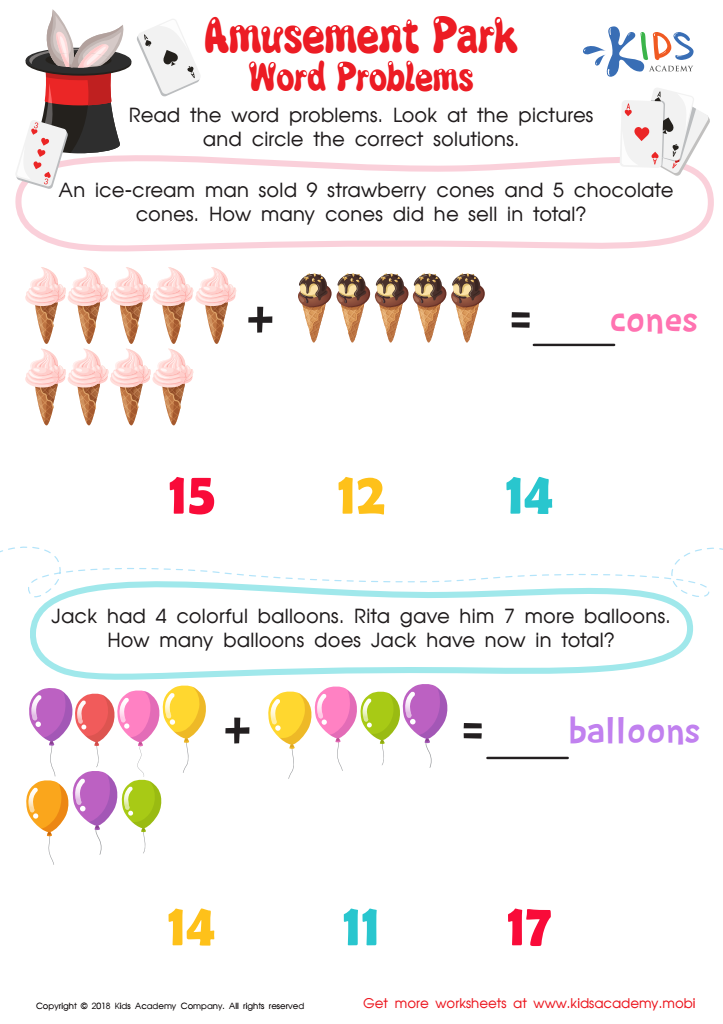

Amusement Park Word Problems Worksheet
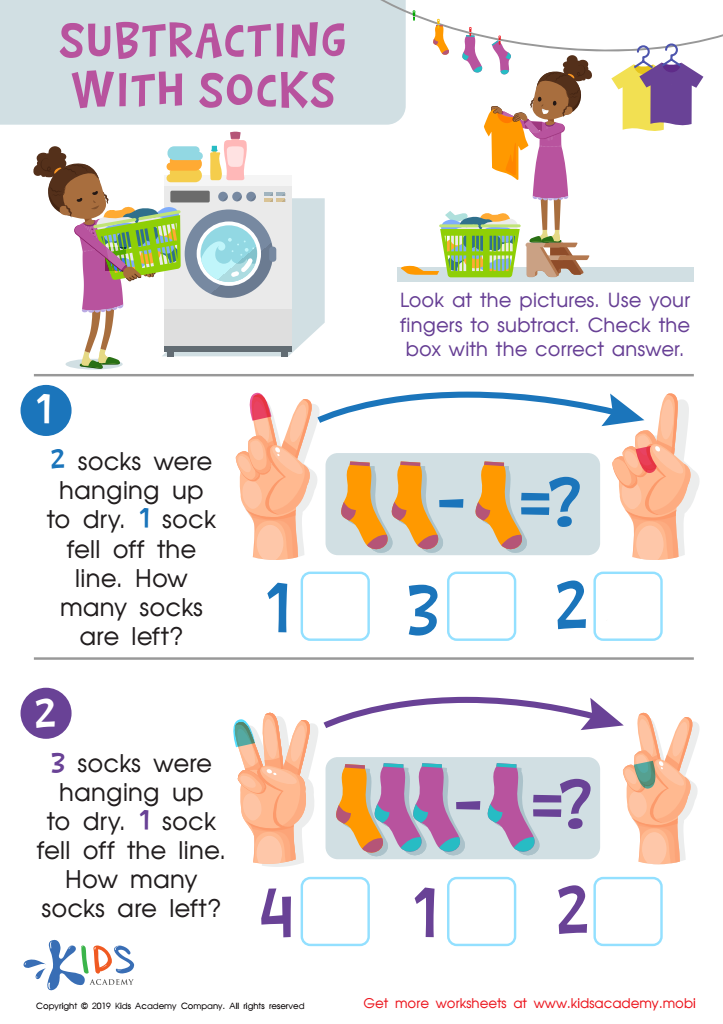

Subtracting Socks Worksheet
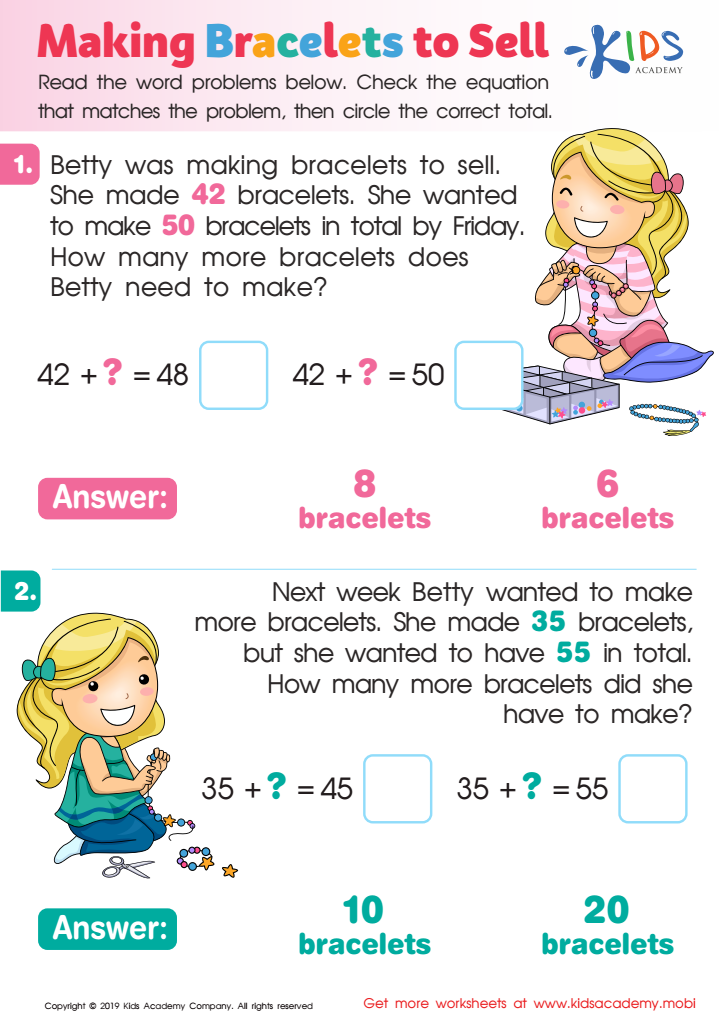

Making Bracelets to Sell Worksheet
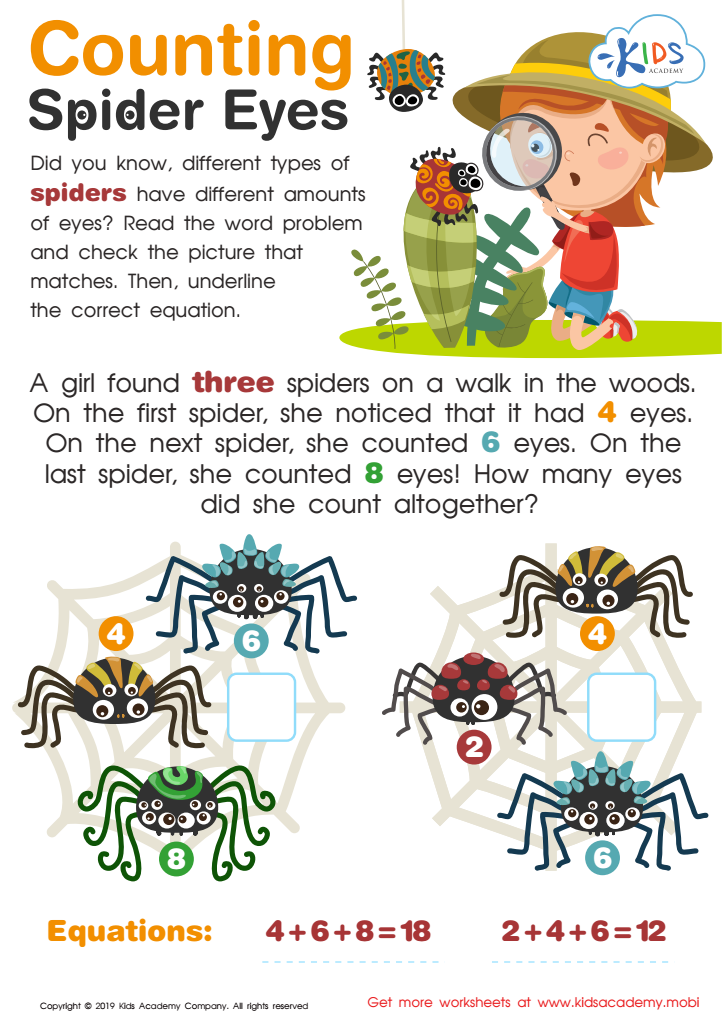

Counting Spider Eyes Worksheet


Counting Seedlings Worksheet


Enrichment -2 Step Word Problems Worksheet
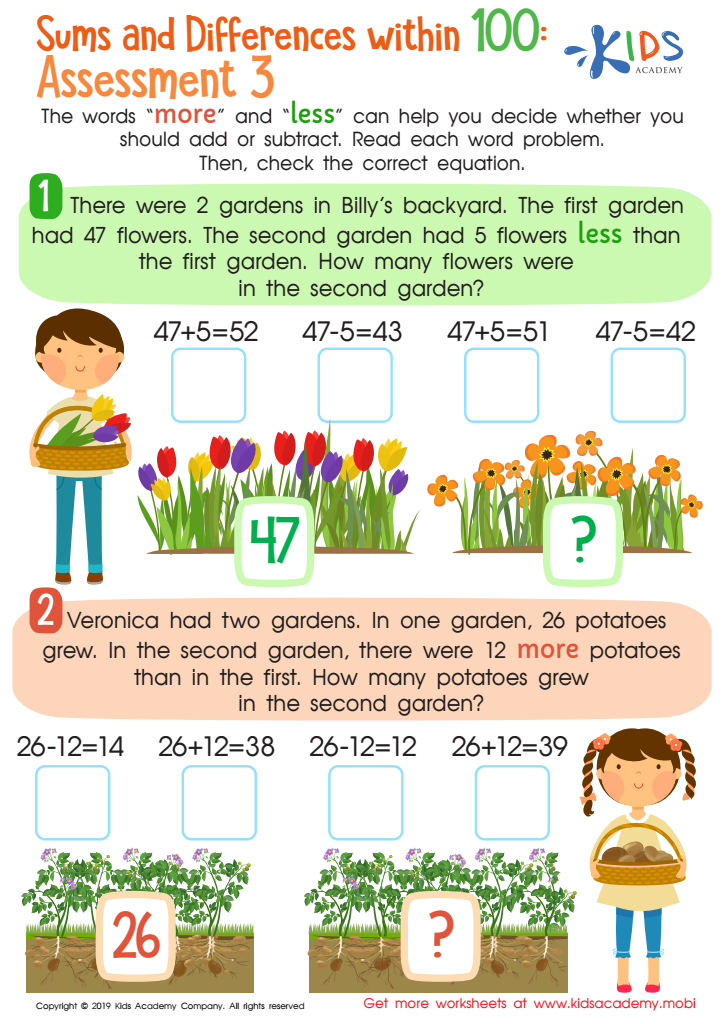

Sums and Differences Within 1 - Assessment 1 Worksheet
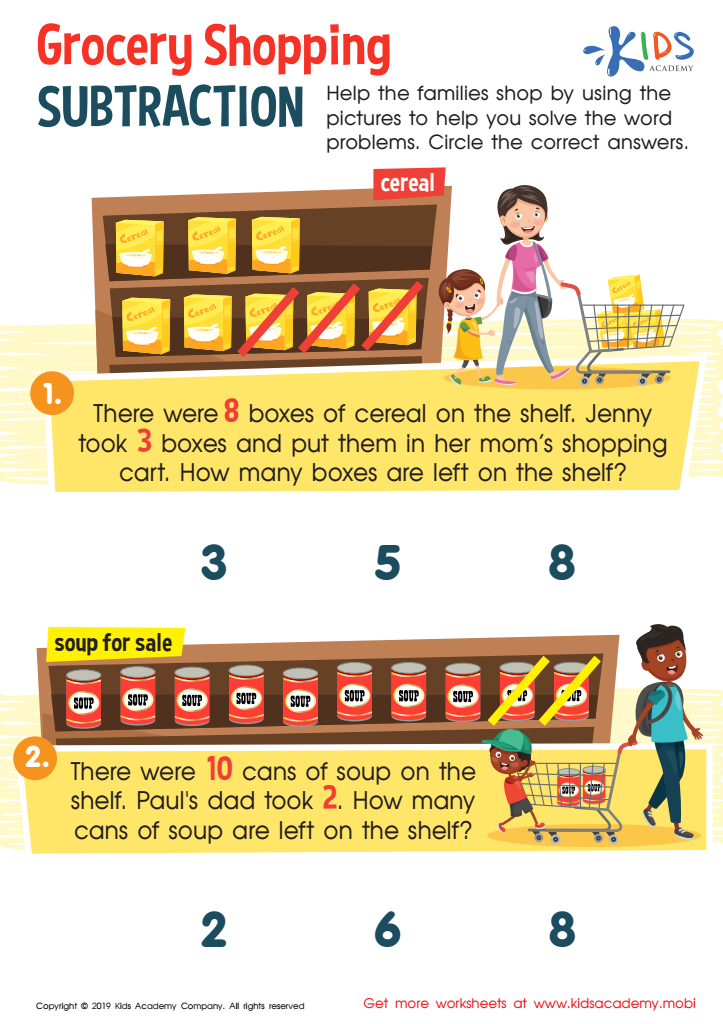

Grocery Shopping Subtraction Worksheet
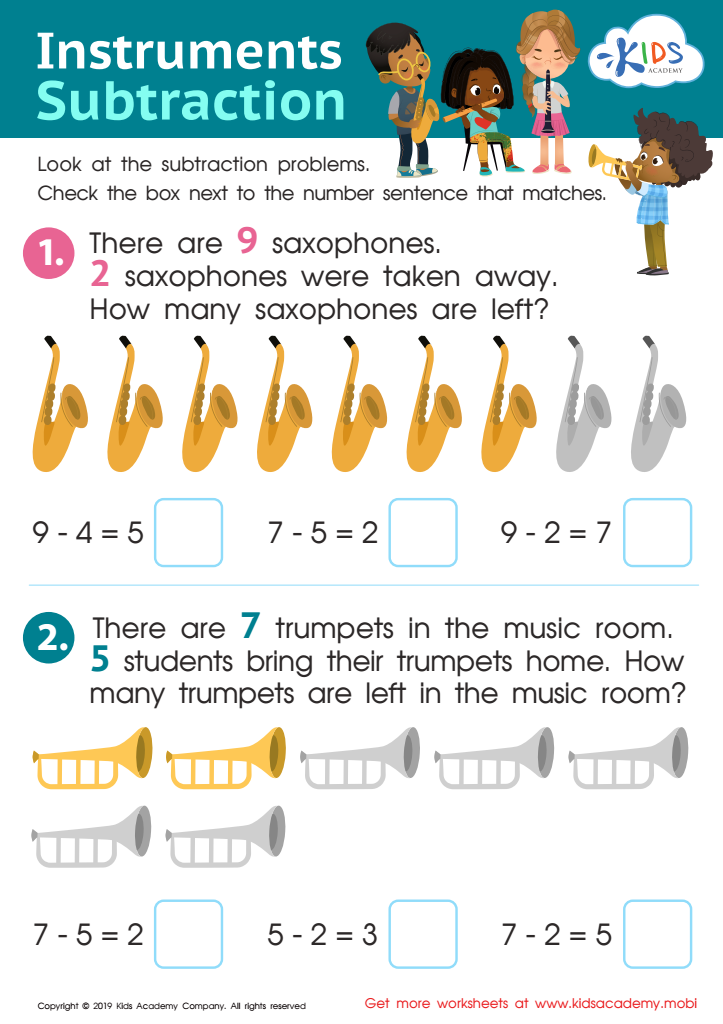

Instrument Subtraction Worksheet
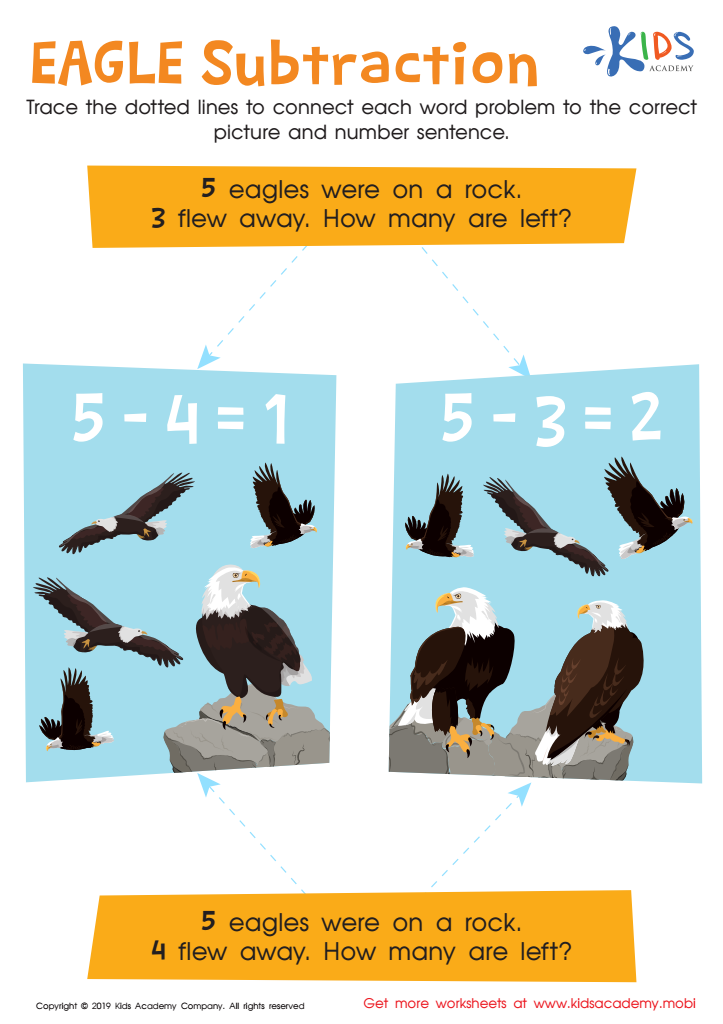

Eagle Subtraction Worksheet
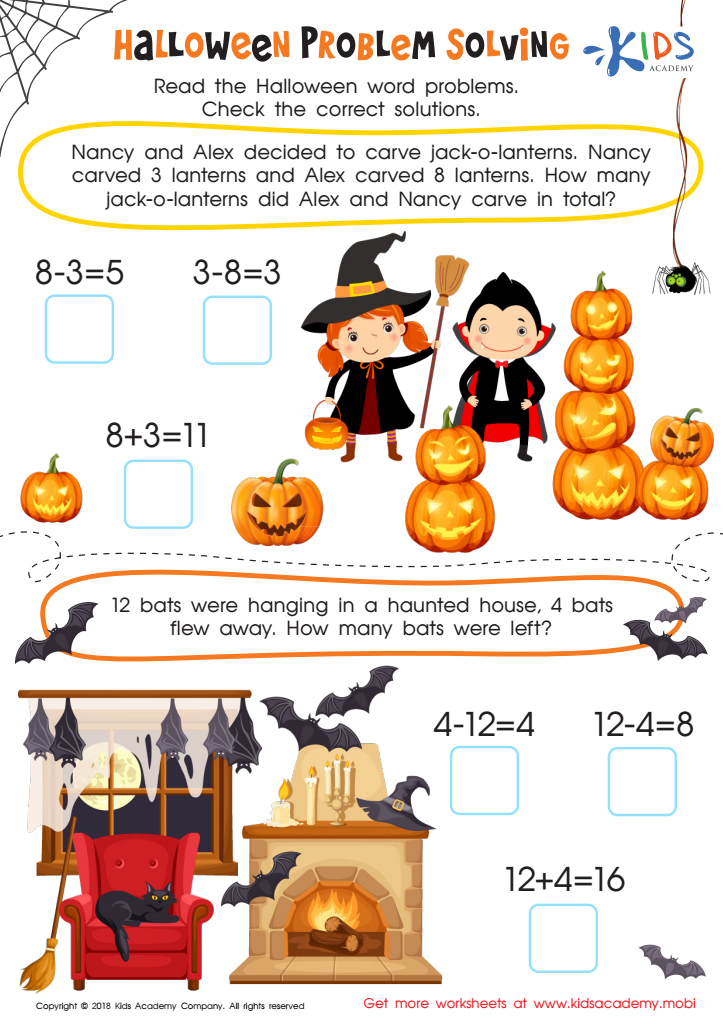

Halloween Problem Solving Worksheet
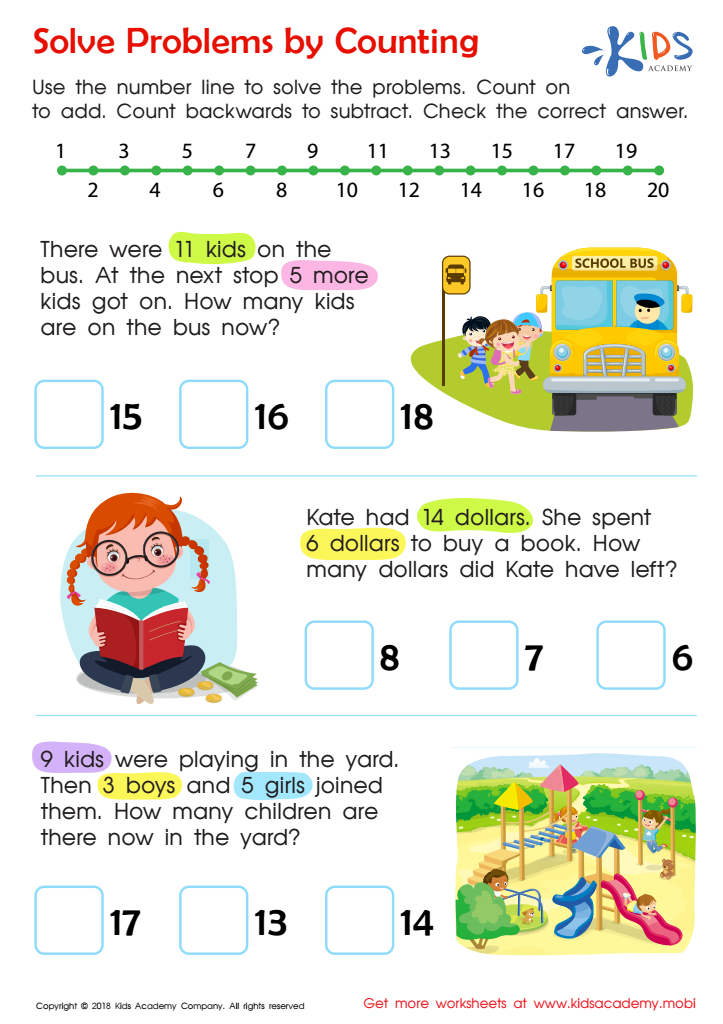

Solve Problems by Counting Worksheet
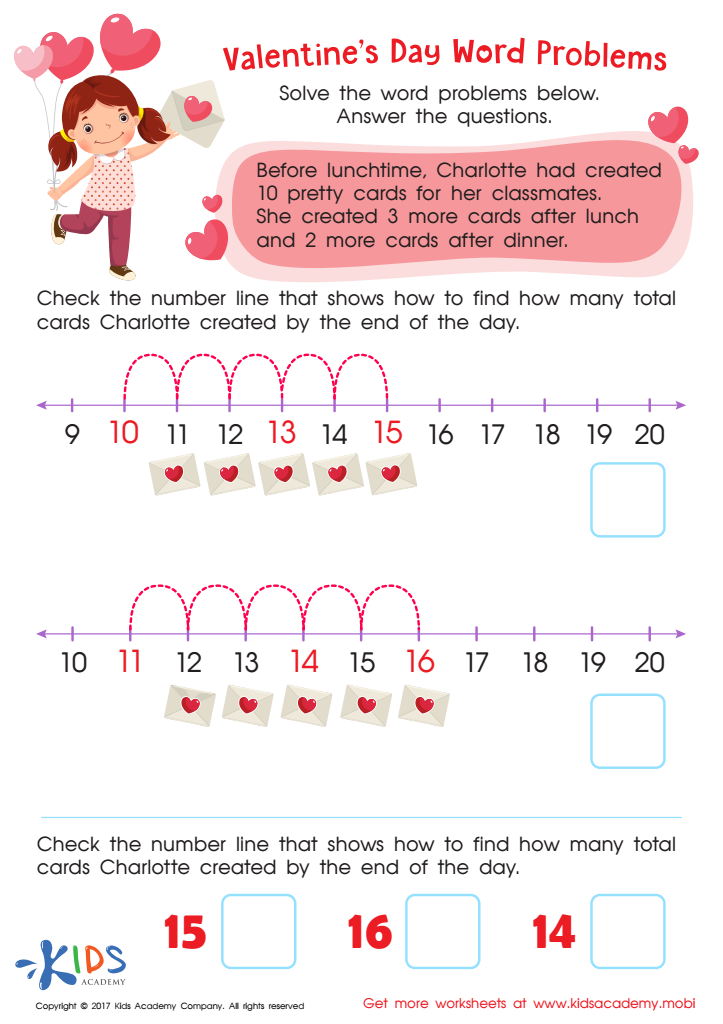

Valentines Day Word Problem Worksheet
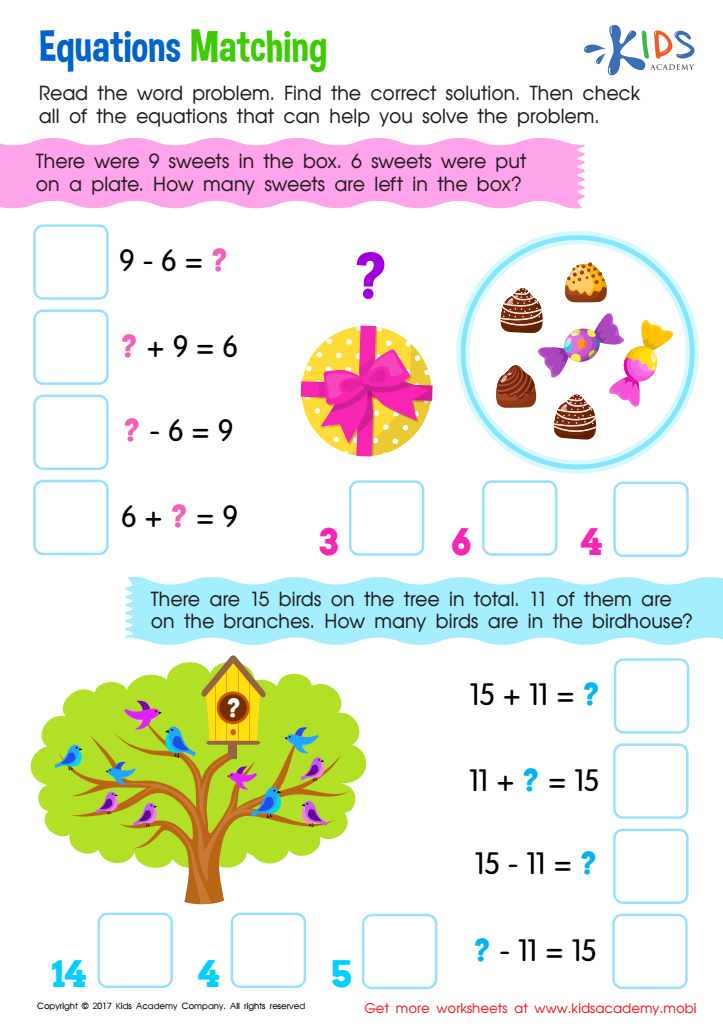

Equations Matching Word Problems Worksheet
Addition and subtraction word problems are crucial for children aged 6-9 as they play a significant role in developing foundational math skills. These problems do more than just teach simple arithmetic; they combine numerical operations with literacy, enhancing both comprehension and analytical thinking skills.
Firstly, embedding arithmetic in real-life contexts aids in understanding. Children can grasp abstract concepts more easily when they're tied to everyday situations, making the math feel relevant and practical. For example, figuring out how many apples are left after some are eaten helps them see the usefulness of subtraction in daily life.
Secondly, word problems build critical thinking and problem-solving skills. Instead of straightforward calculations, children must decipher the textual information, determine what mathematical operation is required, and then execute it. This process mimics real-world scenarios, fostering logical reasoning.
Moreover, reading comprehension skills are sharpened. Children learn to break down sentences, identify key information, and disregard unnecessary details, all of which are vital for academic success across subjects.
Lastly, these word problems foster perseverance and confidence. Successfully solving these challenges instills a sense of achievement and encourages a positive attitude towards mathematics. Teachers and parents should recognize and support the importance of these skills to develop well-rounded, competent learners.
 Assign to My Students
Assign to My Students












